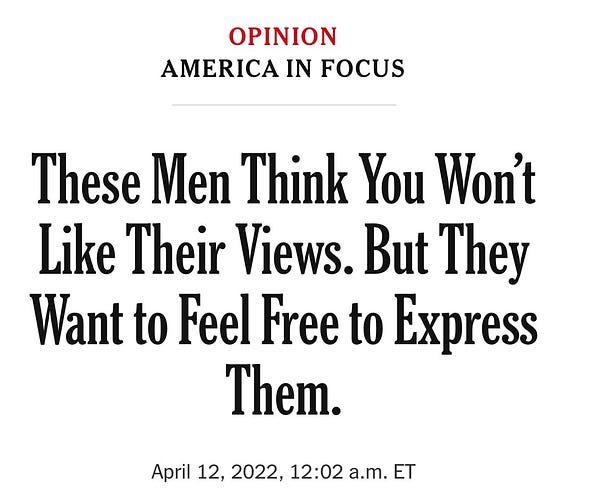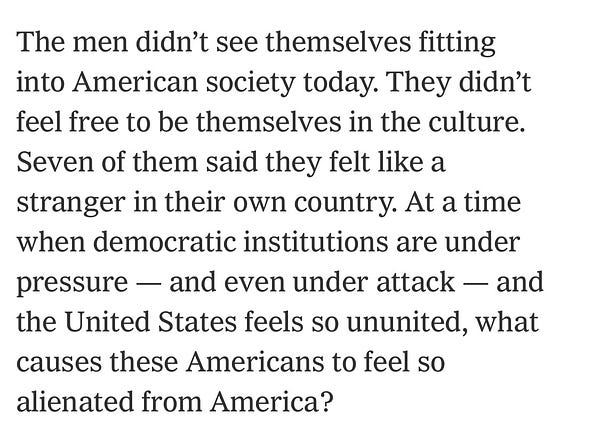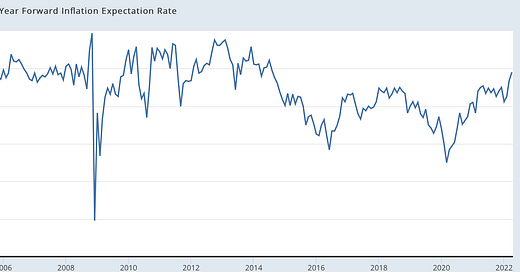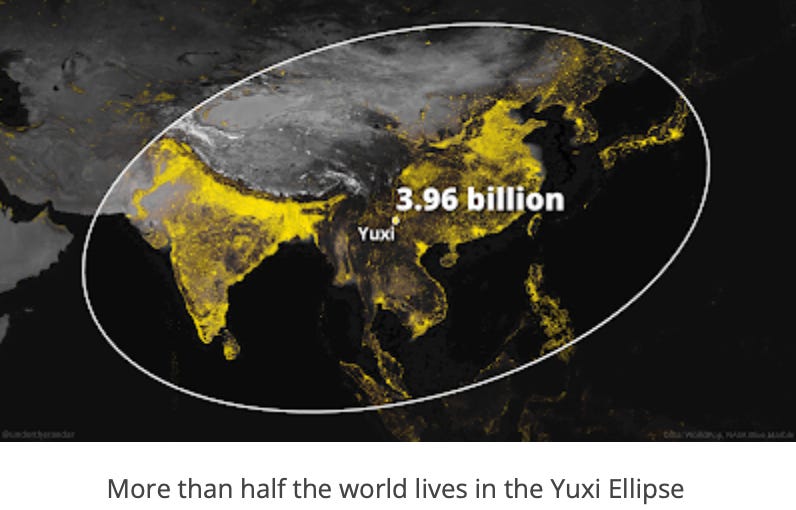CONDITION: Inflation & Structural Adjustment:
I confess to being dismayed about how little of the discussion around inflation even mentions two important points:
First, a central bank works to build credibility precisely so that it has enormous freedom of action to follow the policies in the short run that are best for the economy, even if that means it does not hit its long-run inflation target in the short run.
Second, as a result of the plague, and of the economic transformations the plague has set in motion, we face a period of structural adjustment that it would be very good to complete as fast as possible. But this is in part my fault.
I am part of the problem: I did not stress those two points heavily enough in my email exchange with John Cassidy:
John Cassidy: Over the weekend, I published a piece taking a closer look at Larry Summers’ argument that Biden’s American Rescue Plan was largely to blame for the inflation surge and the Fed botched its response…. Much of the piece revolves around whether demand (stimulus/Fed) or supply (pandemic) is primarily driving inflation….
Brad DeLong: ’I am not sure that the supply/demand division framing makes a lot of sense. Inflation is the result of a supply/demand mismatch. This mismatch could be transient and healthy—a side effect of the good things of rapidly rejoining highway traffic at speed and wheeling the economy toward a more goods- and deliverator-heavy configuration. This mismatch could be long-lasting and unhealthy. The question is which. And the answer to that question turns on whether the economy has lost its expectational inflation anchor: Do people still expect inflation to be about 2%? Or do people think inflation is up-for-grabs and recent past inflation (or recent past plus a little more) is your best guess for what inflation will be in the future? My bet is that the 5/5 series from FRED is our best guide to what the relevant people are thinking. & the 5/5 has not (yet) moved…
LINK: <https://threadreaderapp.com/convos/1513507454033797126>
FIRST: SubStack:
I kinda think that one should not read Tiffany Hsu of the New York Times on SubStack. There are so many people who are not trying hard to bullshit you, that it is difficult to justify reading anybody who is. But Noah Smith reads it:
Noah Smith: Is Substack Good for the World? Is Substack Worth It for Writers?: ‘Tiffany Hsu of the New York Times… shady that the NYT article talked of an “exodus” from Substack, while quietly noting lower down in the article that the platform is actually growing by leaps and bounds…
And he has reactions:
Noah Smith: Is Substack Good for the World? Is Substack Worth It for Writers?: ‘Twitter… strong network effects…. The fact that there can be only one Twitter gives the platform a degree of social responsibility that it would not otherwise have. Its content decisions… necessarily exercise huge sway…. Twitter is one of society’s mezzanine institutions, whose micro-actions carry macro importance…. Clones of Substack are proliferating quickly. These platforms are really more like newsstands than public squares…. Although I really really really do not like antivaxxers, I don’t get mad that Substack still allows them on its platform. Substack isn’t making the world worse….
The more distinctive your voice and your perspective is, the more you should take a look at Substack…. Writing for a living is not a good career—if you want a good salary, follow the cliché and learn to code. Or go work for private equity. But if you really just love to write, and you’d like to get paid a bit more than your job is paying you, and if you’re confident that you have an audience who likes you a lot more than they like the average writer, then Substack is a pretty darn good deal…
My view is that the red line for a platform should be: does it have an algorithm that up-votes misinformation as it chases clickbait in an attempt to make money? The things that a platform should direct its readers to our things that (a) are true, (b) that the readers want to see and enjoy seeing, and (c) make them happier and better people afterwards. That will not be what maximizes ad revenue. So we all have a duty to deprive platforms with algorithms that up-vote misinformation of revenue, and of attention-oxygen.
Things could change. But at the moment ‘Stack is, as Chad Orzell says, “a really convenient and user-friendly platform…. Substack being set up as a bunch of largely self-contained individual sites makes it less troubling to me that they also host Bad People. They’re not run like a magazine that’s attempting to have or suggest a coherent editorial voice…”
But I would like to demand more than that SubStack not have a bad and destructive algorithm making the world a worst place. I would like it to have a genuinely good algorithm, and genuinely good discovery tools. However, it is not there yet.
One Video:
Peter Falk (1972): On Johnny Carson:
One Picture: The Yuxi Ellipse:
Very Briefly Noted:
Paul Campos: A Coup in Search of a Legal Theory: ‘The first step in combating what’s actually going on is to recognize it for what it is. Then you can fight it without the disadvantages of… eyes wide shut predilections… <https://www.lawyersgunsmoneyblog.com/2022/04/a-coup-in-search-of-a-legal-theory>
Bartleby: How to Make Hybrid Work a Success <https://www.economist.com/business/2022/04/09/how-to-make-hybrid-work-a-success>
Cheryl Rofer: Reading Material on Putin’s War: ‘Masha Gessen talks about how authoritarianism works in Russia…. An interview of Timothy Snyder by Ezra Klein…. As an added bonus, reread my summary of Vladimir Putin’s own words… https://nucleardiner.wordpress.com/2022/04/06/reading-material-on-putins-war/
Paul Krugman: Inflation Is About to Come Down—But Don’t Get too Excited: ‘Rising wages… good… but right now they’re rising at an unsustainable pace…. The good news is that there’s still no sign that expectations of high inflation are getting entrenched the way there were in, say, 1980… <https://messaging-custom-newsletters.nytimes.com/template/oakv2?CCPAOptOut=true&emc=edit_pk_20220412&instance_id=58273&nl=paul-krugman&productCode=PK®i_id=64675225&segment_id=88220&te=1&uri=nyt%3A%2F%2Fnewsletter%2F3b9c05e5-2b34-590d-b927-d5b84e484bab&user_id=8a3fce2ae25b5435f449ab64b4e3e880>
Yuzuru Kumon: How Landownership Equality Created a Low Wage Society: Pre-industrial Japan, 1600–1870: ’If… high wages in western Europe explain the onset of the Industrial Revolution… Japan’s failure to industrialize first could have been shaped by its unusual pre-industrial equality… <http://publications.ut-capitole.fr/45112/1/wp_iast_138.pdf>
Twitter & Stack:
Will Stancil : ’The reason conservative men don’t feel like they fit in modern America is because they DON’T…. They’re a minority! The problem is that they’re accustomed to having near-hegemonic control of society anyway…



David French: How Twitter Beclowns the American Elite: ‘The question we have now is whether we can adapt to social media before it facilitates a cultural calamity on the scale of the industrial revolution’s two world wars…
Director’s Cut PAID SUBSCRIBER ONLY Content Below:
Keep reading with a 7-day free trial
Subscribe to Brad DeLong's Grasping Reality to keep reading this post and get 7 days of free access to the full post archives.









